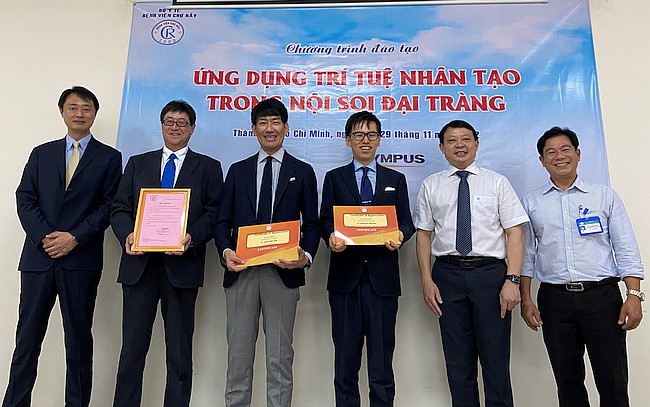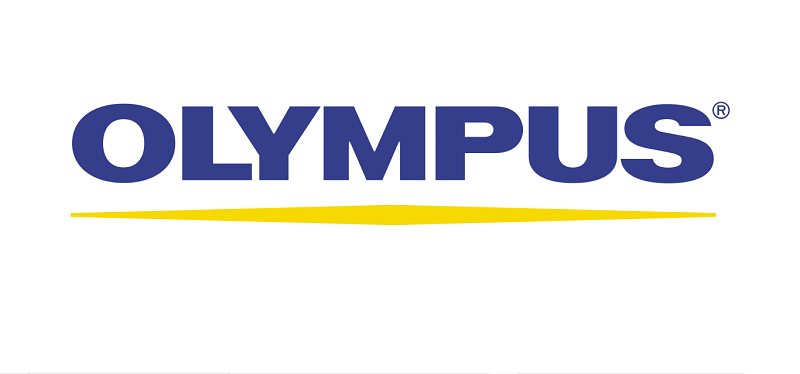Participating in the Ministry of Internal Affairs and Communications of Japan project to conduct a survey study for international expansion of AI diagnosis support system and education for doctors in Vietnam
Olympus Corporation (Olympus), a global medtech company committed to making people’s lives healthier, safer and more fulfilling, today announced their part in a project in cooperation with the Ministry of Internal Affairs and Communications of Japan (MIC), entitled, “Survey Study for International Expansion of Endoscopes Utilizing High-definition Imaging Technology AI Diagnosis Support System in Vietnam.”
This is the third year, after similar projects in Thailand in fiscal year 2021 and India in fiscal year 2020, that Olympus has acted as a corporate partner to investigate the effectiveness and potential dissemination of an AI diagnostic support system. As part of these projects, Olympus has researched clinical applications in collaboration with major local medical institutions. Past clinical use by doctors in India and Thailand, along with consultation with Japanese physicians, showed the effectiveness and potential for future use of EndoBRAIN-EYE and other endoscope diagnostic imaging support software.
From November 2022 to March 2023, Olympus, in collaboration with CYBERNET SYSTEMS CO., LTD., will conduct research on the effectiveness and future use of the AI diagnostic support system EndoBRAIN-EYE at Cho Ray Hospital and 108 Hospital in Vietnam. In addition, specialist lecturers and physicians from Japan’s Showa University Northern Yokohama Hospital and Shizuoka Cancer Center will provide expert guidance to doctors at major Vietnamese hospitals. They will train doctors in techniques for detecting diseases and differential diagnosis with colonoscopes using EndoBRAIN-EYE, and they will also instruct on how to train the next generation of endoscopists.

At the kick-off meeting on November 28, Ho Dang Quy Dung M.D. from Cho Ray Hospital said, “AI is a new and powerful technology making endoscpic procedure more efficient and high quality. I do think that AI will be the big breakthrough of the filed of GI endoscopy in the upcoming years. I hope we have the opportunity to work with Japanese experts in the field of AI in endoscopy.” Professor Shin’ei Kudo from Showa University Northern Yokohama Hospital also commented, “I hope this project will contribute to not only dissemination of the AI technology but also increased partnership between Vietnam and Japan, and look forward to amazing results from this exciting collaboration.”
Background of Olympus’ Participation
Cancer rates have been on the rise in recent years in Vietnam, and colorectal cancer in particular has become a significant issue. It ranks fourth among all cancer cases in men and third among all cancers in women, as well as ranking second in mortality rate among all cancers in both men and women. While the demand for endoscopic screenings, which are essential for the early detection and treatment of cancer, is expected to increase, there is a shortage of physicians with the advanced knowledge and skills required for these examinations. Olympus has joined this project to support the specialists training doctors in Vietnam, to verify the effectiveness and dissemination of AI-assisted colonoscopy, and to contribute to the development of the healthcare environment in Vietnam.
Purpose of the MIC Project
The MIC aims to realize the sustainable development goals and SDG pledges to ensure “no one will be left behind.” To this end, the MIC aims to realize a model that contributes to SDG through digitization and to disseminate and promote an SDG + ICT model domestically and overseas between both the public and private sectors. This project aims to contribute to the introduction and dissemination of Japan’s endoscopic AI diagnostic support system to Vietnam in response to the social issue of increasing cancer prevalence in Vietnam.
Project Scope:
1) Surveys on the policies in the medical, health, and hygiene sectors and the introduction of medical information and communication technology
Information will be collected from major medical institutions and external research institutions to investigate the state of dissemination of medical information systems, including endoscopy systems.
2) Verification through proof-of-concept tests
Research will be conducted on the effectiveness and future use of the AI diagnosis support system at Cho Ray Hospital and 108 Hospital in Vietnam. Physicians from Showa University Northern Yokohama Hospital and Shizuoka Cancer Center will train doctors at major Vietnamese hospitals covering processes from the detection of disease utilizing a colonoscope with an AI diagnostic support system to discriminatory diagnosis, as well as provide training in how to pass on this knowledge to other doctors. Olympus will provide equipment and training courses.
Company names and product names in this release are trademarks or registered trademarks of each company.
Products or devices presented include future technology which may be pending regional regulatory approval and are not available for sale in all regions.
About Olympus
In its Endoscopic Solutions business, Olympus uses innovative capabilities in medical technology, therapeutic intervention and precision manufacturing to help healthcare professionals deliver diagnostic, therapeutic and minimally invasive procedures to improve clinical outcomes, reduce overall costs and enhance the quality of life for patients. Starting with the world’s first gastrocamera in 1950, Olympus’ Endoscopic Solutions portfolio has grown to include endoscopes, laparoscopes, and video imaging systems, digital and integrated customer solutions, as well as solutions for infection prevention. For more information, visit www.olympus-global.com and follow our global Twitter account: @Olympus_Corp.
Media contact:
Nao Tsukamoto
Global-Public_Relations@olympus.com
Olympus Corp [TYO: 7733] [ADR: OCPNY] [GDR: OLYS] https://www.olympus-global.com
